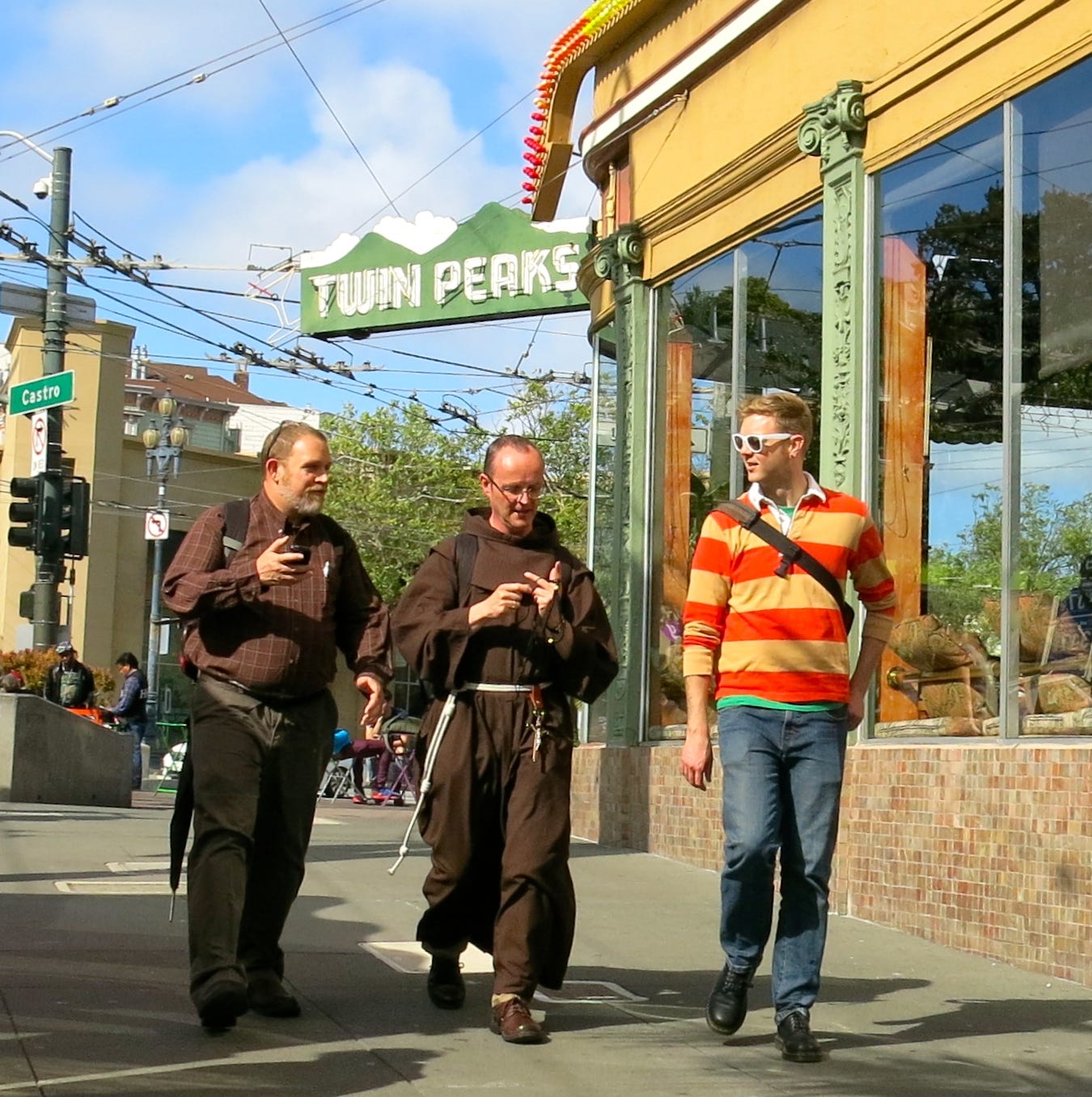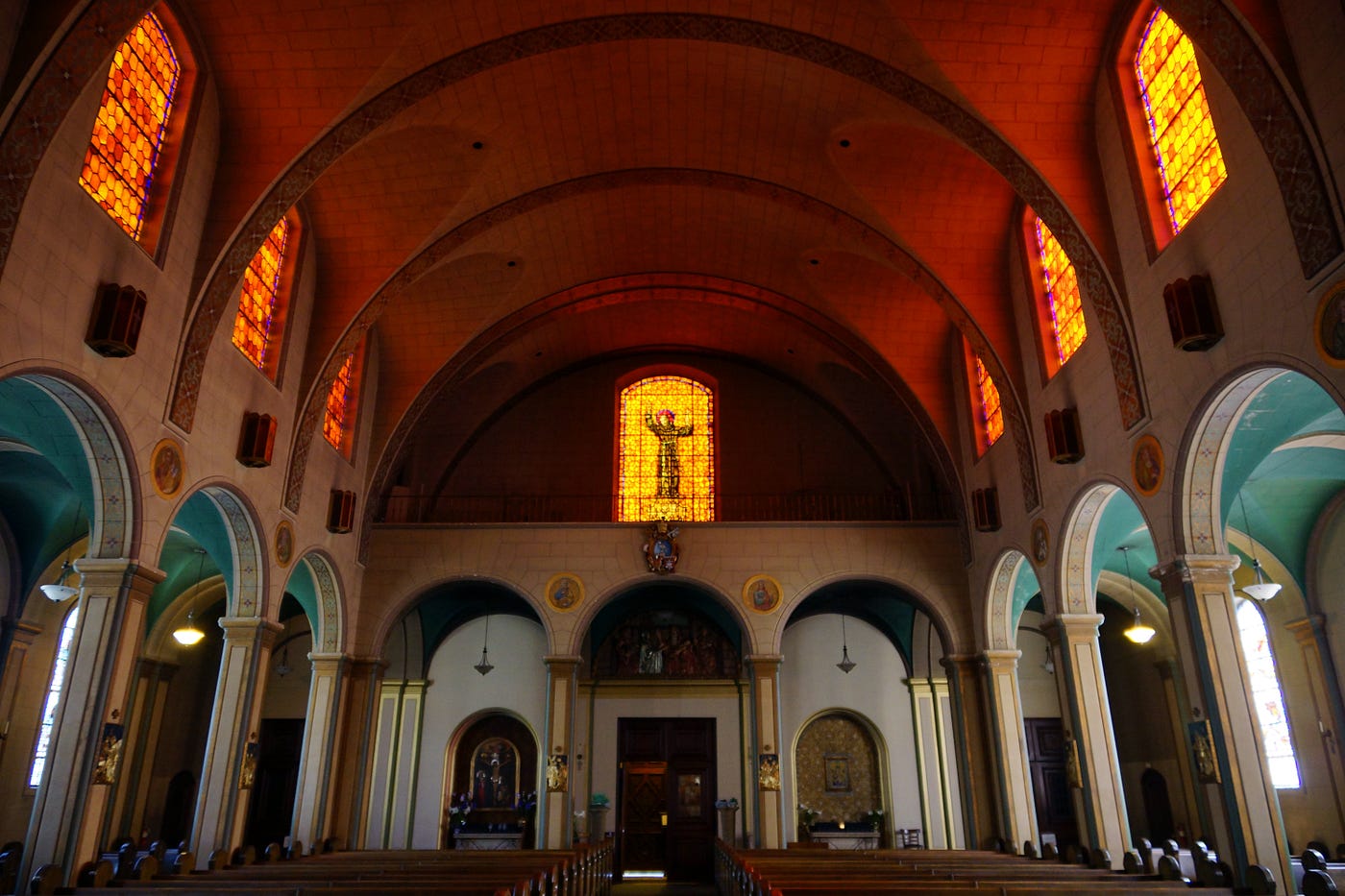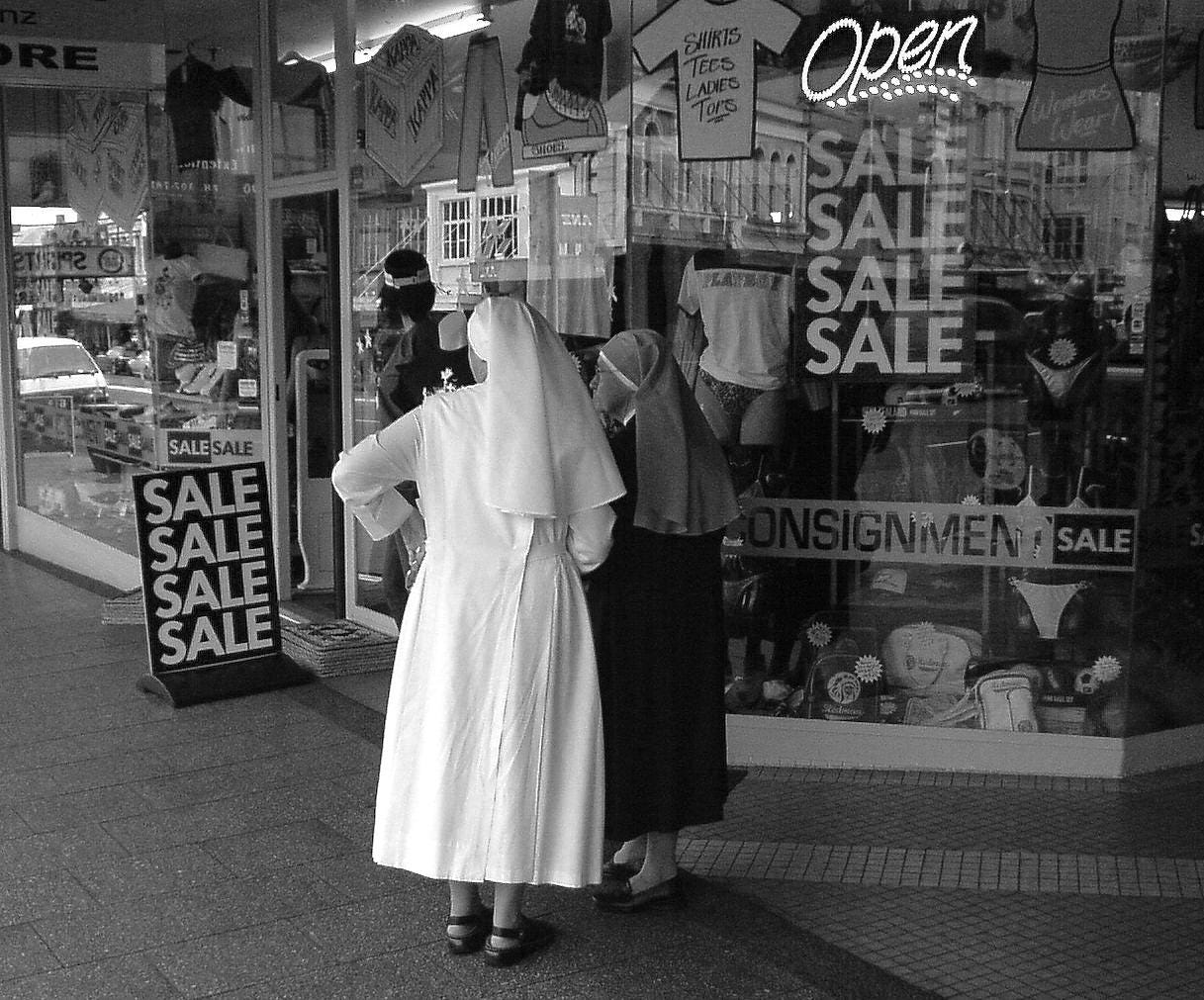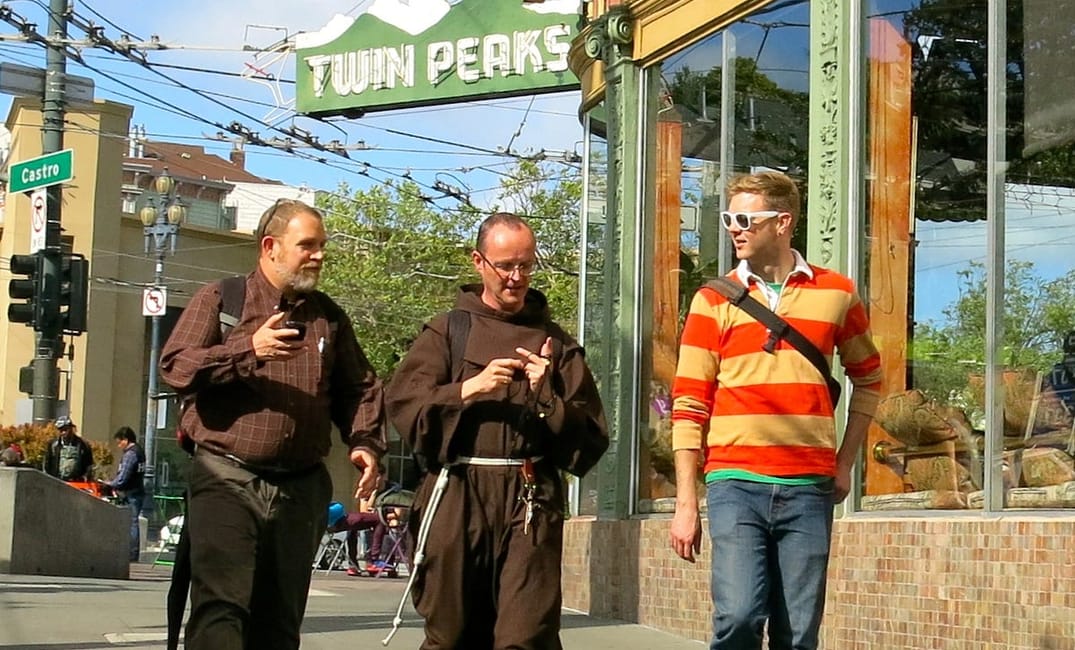
In San Francisco, a family of four bringing in $105,000 is now considered “low income.” How does a salary of $8,000 a year sound? That’s what brother Joe Frias, a teacher in the Religious Studies department at a local high school, has been living on since entering an order of Jesuit priests after graduating college. Meals and housing are included by the order, true, but that still doesn’t leave much room for luxuries like going out to eat with loved ones or trips home to visit family.
Since our capitalist society tends to measures success in terms of one’s ability to spend at will, there must be some pretty big gains that come from opting for poverty. “For Jesuits, the Vow of Poverty is very closely related to trying to spread the good news,” Frias told me. “It’s kind of like, ‘Wow, this is what I’m going to do so someone else can notice it.’”
The transition from consumerism to minimalism can be challenging, which is why the Jesuits typically call for a two-year trial period to see if prospective brothers can stick it in such extreme digs. For Frias, a college kid living at home with his parents, the transition wasn’t as much of a shock for him as it was for, say, a former CEO who left behind multiple homes and a powerful career. But that doesn’t mean this new lifestyle didn’t require a constant refocusing on his work and why he chooses to live in such a way.
“What has been a guiding thing for me is the person of Jesus and wanting to follow Jesus. It’s how I make sense of the vows,” said Frias, about how he reconciles his religion with poverty. “When we don’t have a lot, when our main focus isn’t money, that ideally allows us to focus more on our relationship with God.” And so decisions that might seem racked with deprivation become as simple as inviting friends over rather than going out on the town.

Though not religiously ordained, Fumi Tosu, a member of the San Jose chapter of the Catholic Worker Movement, would agree with this shift of focus as a byproduct of poverty vows. If you thought $8,000 a year sounded challenging, how does $100 a month sound? That’s what Tosu and the three other staff members of his house, known as Casa de Clara, live off of as part of what they call “voluntary simplicity.” Still, he claims he worries about money far less than he did when working as a high school teacher making an annual salary of around $80,000, which he did for seven years before leaving mainstream society.
“It’s amazing when you stop making money, and you have to rely on the goodness of people around you and trust God. You stop worrying about it,” Tosu said. The life he describes is peaceful and liberating, which he explained was part of his intent when deciding to seek out the Catholic Worker Movement. “Something about numbers — you see it, and it takes a hold of you, of your heart. It’s measurable, quantifiable. And you’re thinking, ‘If I make much more, it will be better,’ versus as a Catholic Worker, you measure yourself not on productivity and success.”
The liberation he described comes from more than just monthly bill calculation and post-shopping-spree regret. Foundational to the philosophy of voluntary simplicity is the idea the when no one pays you, no one dictates your life to you. In achieving this level of fiscal independence, Catholic Workers are then free to choose how they want to most effectively and efficiently provide aid in their uniquely afflicted neighborhoods.
San Jose’s chapter, one of 260 nationwide, provides housing for homeless women and children, runs a food-distribution program and recently repurposed a trailer into a shower service. Doubling as “peace activists,” the San Jose Catholic Workers at times “commission” one another for other not-so-local protests and demonstrations — another freedom offered by their lifestyle. Tosu’s most recent social-justice mission was a 10-day trip to Standing Rock in November when the conflict was at its most heated. Though it was inspiring to live out of his van, surrounded by so many other activists all relying on one another for survival, the bottom line of his entry into voluntary simplicity is this: “It allows us to spend time caring about people in the community and working to meet real human need instead of working as wage slaves.”
The Vow of Poverty really is all about community, in sister Celeste Arbuckle’s expert opinion, which she’s devised over the course of 36 years of religious life. She joined the Sisters of Social Work in 1971 after graduating from college with degrees in theology and sociology and beginning a career in religious education. Since then she has travelled extensively for her work — what she calls being “missioned out” — from Oregon to LA, and on and off in the Bay over the years. The moving has helped her keep her eyes on the “one trunk” goal when it comes to minimizing personal possessions — something any Burning Man enthusiast or Millennial bouncing from one Craigslist sublet to the next can empathize with.

But most days, Sister Arbuckle savors her poverty in the Benedictine tradition, which is known for its focus on a communal lifestyle above all else and the belief that the group as a whole has general parameters of what each individual can and cannot have. All decisions over resource allocation are made as a group and are based on the needs of the sisters. So it’s up to the community to help ease the transition for new sisters struggling with the Vow of Poverty, in which case they defer to open conversations and regular storytelling that help clarify the distinction between what one assumes one needs and what one really needs.
Although she can give lots of tips on everything from dressing professionally on a budget to the art of low-cost gift giving, her biggest rule of thumb is this: never go outside the community for what can be supplied within it. Essentially, she said, “I always live with the thought that whatever I have belongs to my sisters, and that my need for common good should not spoil other people’s needs.”
Arbuckle is quick to acknowledge the unique challenge of living in a city so defined by its toxic relationship with wealth. The Bay has no shortage of nice restaurants and expensive boutiques she must actively avoid in order to not be tempted into spending. San Francisco has its share of rich and poor, and though she is in a way distinct from both groups — she emphasizes her poverty as a choice and not a forced situation — she is also in a position to witness firsthand how families in poverty, the source of so much energy for the community, are at risk.
Poverty vows and religious life are intrinsically connected to the environment and community they are lived out in, explained Frias, who says he’s noticed stark differences in comparison to other places he’s worked in, like Arizona and Missouri. He tells me about a recent trip he took his students on to a low-income housing unit in the Tenderloin, where one of his students remarked, “My bedroom is bigger than their whole SRO.” It’s easy to lose sight of how others in the city live when you live in a bubble, but he says he takes his students’ eagerness to volunteer again as a good sign.
Tosu, who admits he sometimes feels like an outsider when he breaks from his house and takes “day trips” downtown, sums up his experience like this: “I will never be truly poor even when I’m not spending money, because of my privilege, my background, my education…but there is a kind of being only possible on the margins, and by situating ourselves there, we can see more clearly the workings of capitalism and how it affects those on the bottom.” It’s about solidarity more than just not having money.







